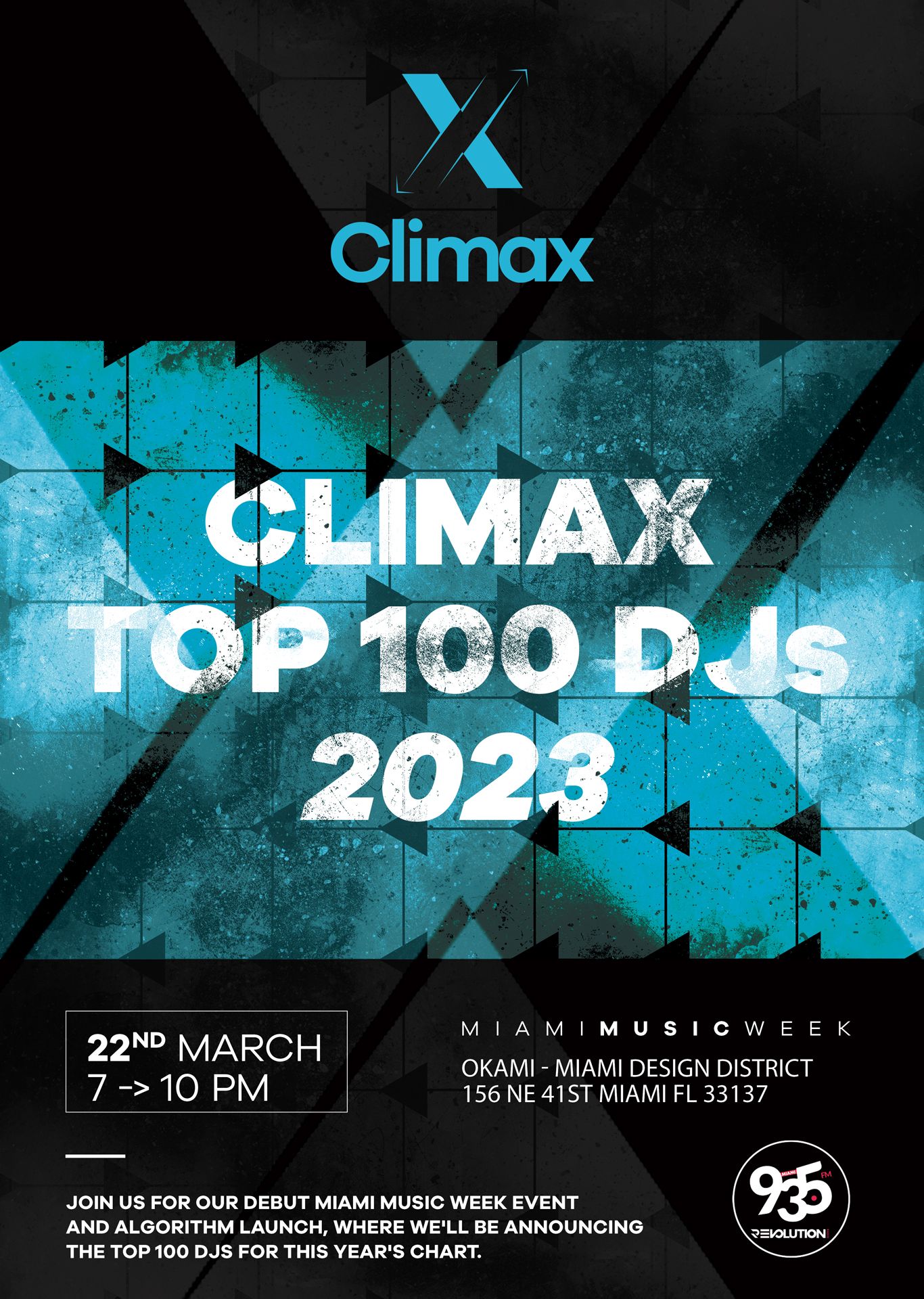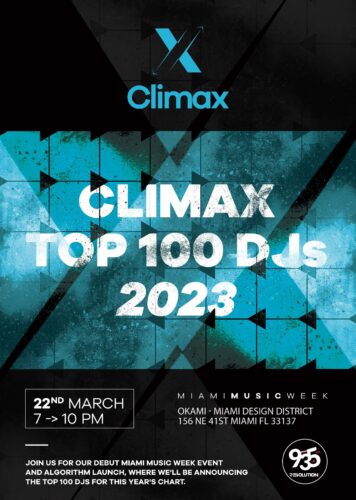No products in the cart.
Could Climax's data-driven approach dethrone the fan-based DJ Mag Top 100?

In the world of electronic music, the DJ Mag Top 100 has long been the go-to ranking for the industry’s most influential artists. However, a new contender called Climax has emerged, promising a more objective and data-driven approach to ranking the world’s top DJs and producers. With its algorithm-based system, Climax aims to revolutionize the way artists are ranked.
Climax’s algorithm takes a comprehensive approach to ranking by analyzing 15 different parameters extracted from 11 leading streaming and social media platforms. This data-driven methodology eliminates potential biases found in fan-based voting systems like the DJ Mag Top 100. The algorithm calculates a final score called ‘points’ by performing a weighted sum of the normalized data values, giving more importance to specific platforms and parameters.
Data Access and Parameters
The Climax algorithm uses a wide range of data sourced from electronic music DSPs and social media platforms. By accessing daily data from the entire time period considered for the ranking, artists from all over the world are analyzed and taken into consideration. Parameters used in the algorithm include Instagram followers and likes, Spotify streams and followers, YouTube views and subscribers, Soundcloud streams and followers, TikTok views, and chart positions on Tidal, Amazon, and Apple Music.
The Future of DJ Rankings?
The debut of the Climax algorithm comes at a time when data-driven decision-making is becoming increasingly important in various industries, including music. Climax’s approach to ranking DJs and producers offers a more objective and transparent way of evaluating an artist’s influence and popularity, making it a strong contender to replace the fan-voted DJ Mag Top 100.
To celebrate the launch of the new algorithm, Climax is hosting its debut Miami Music Week event on March 22nd at Okami, Miami. The event will feature a presentation on the algorithm, followed by the Climax Top 100 awards ceremony and an after-party. Attendees will also have the opportunity to set up interviews with participating artists.
 While data-driven approaches like the Climax algorithm can provide a more objective and transparent method of ranking artists, it is important to consider the ethical implications of quantifying music and art. At their core, music and art are subjective experiences that evoke emotions and personal connections, which cannot be fully captured by numbers and statistics. By ranking artists based on data, there is a risk of reducing these creative expressions to mere numerical values, potentially overlooking the intangible qualities that make them unique and meaningful. An overreliance on data-driven rankings could lead to homogenization in the industry, with artists focusing more on achieving higher numbers rather than pushing creative boundaries. As the Climax algorithm gains traction, it is crucial to strike a balance between embracing data-driven insights and preserving the inherently human and emotive aspects of music and art.
While data-driven approaches like the Climax algorithm can provide a more objective and transparent method of ranking artists, it is important to consider the ethical implications of quantifying music and art. At their core, music and art are subjective experiences that evoke emotions and personal connections, which cannot be fully captured by numbers and statistics. By ranking artists based on data, there is a risk of reducing these creative expressions to mere numerical values, potentially overlooking the intangible qualities that make them unique and meaningful. An overreliance on data-driven rankings could lead to homogenization in the industry, with artists focusing more on achieving higher numbers rather than pushing creative boundaries. As the Climax algorithm gains traction, it is crucial to strike a balance between embracing data-driven insights and preserving the inherently human and emotive aspects of music and art.
While the DJ Mag Top 100 has been a longstanding staple in the electronic music scene, Climax’s innovative and objective approach could potentially become the new standard for ranking the world’s most influential artists. Only time will tell if Climax will indeed compete with the DJ Mag Top 100, but its entrance into the industry marks an exciting new chapter in the world of electronic music.

